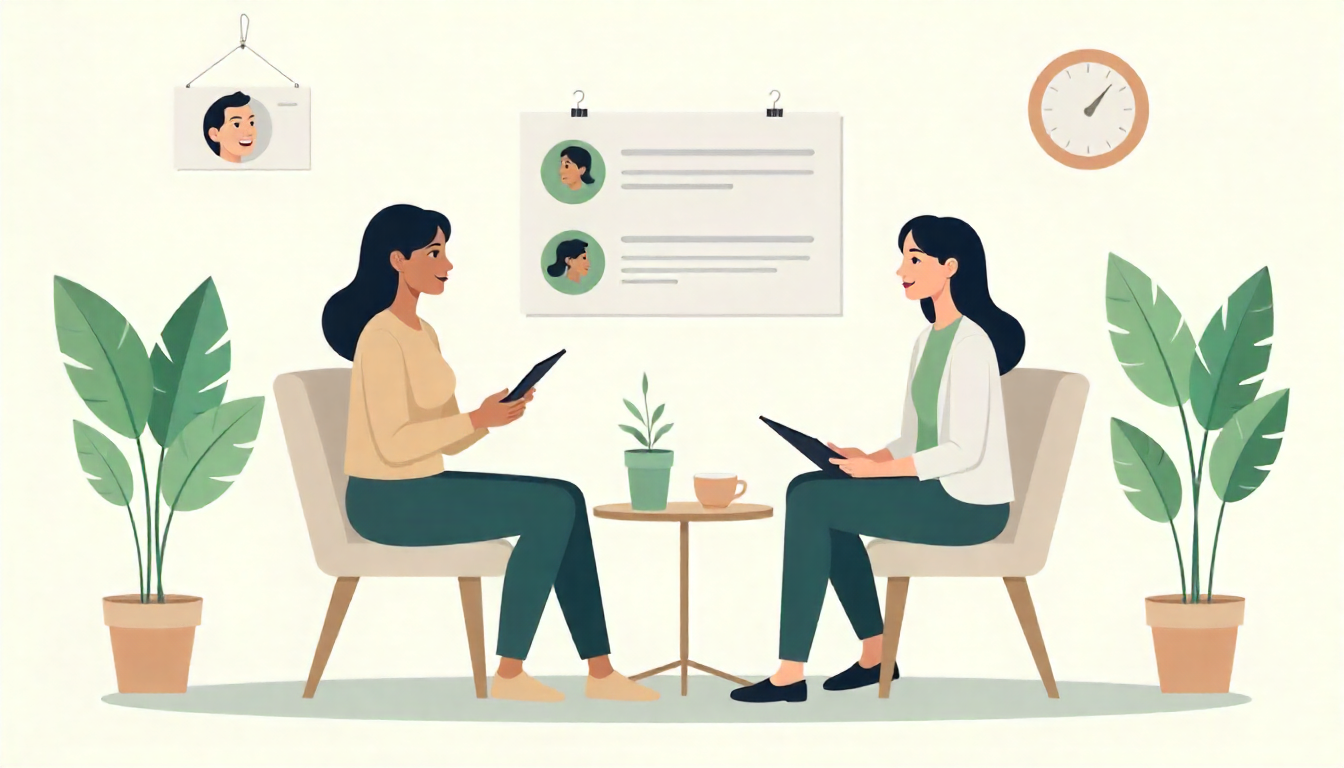
Bipolar Counselling in Calgary
Ease Mood Swings and Reclaim Steady Energy
At CPC Clinics, we provide specialized Bipolar Counselling in Calgary for individuals living with Bipolar I or II. These cycles of mania, hypomania, and depression can disrupt sleep, work, and relationships, but our evidence-based care is designed to restore stability and hope in daily life.
Your care is structured, collaborative, and paced to match where you are. Here’s what our bipolar-informed approach typically includes:

Comprehensive Assessment
Comprehensive Assessment: Your care begins with a thorough and thoughtful assessment of your symptoms…
Comprehensive Assessment: Your care begins with a thorough and thoughtful assessment of your symptoms, flare patterns, sleep quality, daily functioning, and medical history. By looking at all of these areas together, we gain a complete picture of how pain affects your life. This allows us to create a treatment plan that is precise, individualized, and truly responsive to your unique situation.
Structured Mood Charting and Early-Warning Planning
Structured Mood Charting and Early-Warning Planning: You will be supported in keeping structured mood charts…
Structured Mood Charting and Early-Warning Planning: You will be supported in keeping structured mood charts to identify patterns and fluctuations before they escalate. Alongside this, your therapist will help you create early-warning-sign plans that connect specific thresholds—such as changes in sleep, energy, or thought pace—to clear and practical daily actions. This proactive approach allows you to respond to shifts in your mood with stability and confidence.
IPSRT-Based Rhythm Stabilization
IPSRT-Based Rhythm Stabilization: Your treatment includes strategies drawn from Interpersonal and Social Rhythm…
IPSRT-Based Rhythm Stabilization: Your treatment includes strategies drawn from Interpersonal and Social Rhythm Therapy (IPSRT), which focus on stabilizing daily rhythms. Together, you and your therapist will design routines that anchor meals, activities, light exposure, and social time, creating consistency that helps regulate both biological and emotional cycles. This structured rhythm becomes a foundation for long-term stability.
CBT-BD Skills for Thought and Behaviour Change
CBT-BD Skills for Thought and Behaviour Change: Through cognitive-behavioural strategies adapted for bipolar…
CBT-BD Skills for Thought and Behaviour Change: Through cognitive-behavioural strategies adapted for bipolar disorder (CBT-BD), you will learn practical ways to shift thoughts and behaviours that intensify mood swings. This includes pacing important decisions, reducing risky impulses, and developing tools to calm and balance your responses. Over time, these skills enhance self-awareness and support steadier, healthier patterns of living.
Medication Collaboration
Medication Collaboration: When medication is part of your treatment plan, your therapist will collaborate with…
Medication Collaboration: When medication is part of your treatment plan, your therapist will collaborate with your family physician or psychiatrist, always with your consent. Shared goals, coordinated communication, and clear feedback pathways ensure that counselling and medication management work hand-in-hand. This team-based approach reduces confusion and helps you feel supported across your circle of care.
Relapse-Prevention and Values-Based Goals
Relapse-Prevention and Values-Based Goals: Your care plan includes relapse-prevention strategies that are rooted…
Relapse-Prevention and Values-Based Goals: Your care plan includes relapse-prevention strategies that are rooted in your personal values and aspirations. Together, you will identify meaningful goals related to school, work, health, relationships, and community. Each goal is paired with personalized steps for early stabilization, giving you a roadmap to protect progress, prevent setbacks, and return more quickly to balance when challenges arise.
How Bipolar Counselling Helps You Find Peace
We draw from evidence-based therapies specifically adapted for bipolar care to match the realities of your mood patterns and daily life. Our bipolar counselling services in Calgary blend practical skill-building with lived application, supporting you to stabilize rhythms, navigate mood shifts with confidence, and sustain progress in the areas that matter most.

1. CBT-BD (CBT for Bipolar):
CBT-BD (CBT for Bipolar) adapts core cognitive-behavioural tools for mood instability. Together we map thinking styles that fuel spirals.…read more
2. Interpersonal & Social Rhythm Therapy:
IPSRT (Interpersonal & Social Rhythm Therapy) strengthens circadian and social anchors that stabilize mood over time. We protect a consistent sleep window…read more
3. Family-Focused Therapy:
FFT (Family-Focused Therapy) invites loved ones into structured sessions when appropriate. We build shared understanding of bipolar patterns.…. read more
4. Mindfulness/ACT (supportive):
Mindfulness and Acceptance-Commitment approaches offer practical ways to notice urges, sensations, and thoughts without reacting on…. read more
5. Psychoeducation & Safety Planning:
Psychoeducation and safety planning clarify symptoms, mixed features, and personal triggers. We co-create step-wise plans that define thresholds.… read more
Meet Our Calgary Bipolar I & II Counsellor:

Zarrin Tasneem
Clinical Director
MACP – Registered Provisional Psychologist
Flexible & Accessible Counselling Options :
We’re committed to making couples counselling convenient, transparent, and accessible—whether you’re in Calgary or anywhere across Alberta.

Sessions start from $240 CAD per session

Insurance billing available under specific conditions

In-person sessions available in Calgary

Virtual therapy sessions offered throughout Alberta
Let’s find a time and format that works best for you.
Blogs:
Find Stability With CPC Clinics: A Conversation With Us
Discover how CPC Clinics supports individuals living with Bipolar I & II through compassionate, personalized care. This page explores practical approaches, evidence-based strategies, and what to expect when beginning your journey with our bipolar counselling services in Calgary.
Frequently Asked Questions:
Ans : No. You can self-refer to our bipolar counselling services in Calgary. If you already have a psychiatrist or family doctor, we can coordinate with your consent to ensure aligned care. Many clients find that combining therapy with medical support improves safety, skill use, and prevention over time. If a referral is required for insurance, we will provide details you can share with your provider.
Ans : Yes, only with your written consent. We can share progress updates, sleep plans, and risk thresholds so everyone uses the same playbook. Collaboration helps you avoid mixed messages and get timely support if symptoms escalate. You decide what information is shared and can change permissions at any time.
Ans : Therapy does not replace medication for bipolar disorders. Evidence from leading academic centres shows best outcomes with a collaborative approach. We focus on skills, routines, communication, and safety planning while your prescriber manages medication decisions. If you have questions about medications, we’ll help you prepare them for your appointment.
Ans : Therapy is not an emergency service. If you are at immediate risk, call 911, go to the nearest emergency department, or contact local crisis lines first. We will safety-plan in session and clarify steps to take if risk returns between appointments. You’ll also receive guidance on who to contact after hours in your community.
Ans : It varies. Many clients begin our bipolar counselling services in Calgary with weekly or bi-weekly sessions for 8–12 weeks, then taper as skills and routines strengthen. Your plan is individualized, and we adjust pace based on goals, progress, and life demands. We revisit goals regularly to ensure therapy remains useful and focused.






